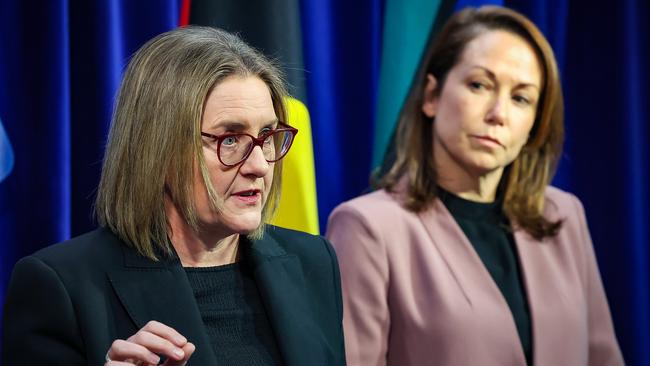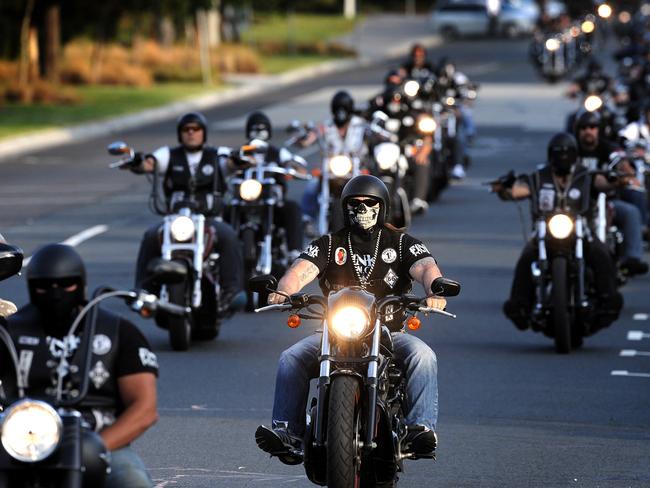Bikie laws to be beefed up to crack down on Victorian criminal gangs
The Allan government has been working to tighten up bikie laws and crack down on criminal gangs as allegations emerge of close links between bikies and the CFMEU.

Police & Courts
Don't miss out on the headlines from Police & Courts. Followed categories will be added to My News.
The state government has been quietly working on tougher bikie laws for more than a year after Victoria Police warned they needed more powers to crack down on criminal gangs.
Premier Jacinta Allan on Monday revealed that changes were being made to bikie laws, including beefing up anti-consorting laws.
It came in the wake of the allegations that the CFMEU had close links with bikies and underworld figures and were infiltrating government work sites.
However, government sources told the Herald Sun work on the new laws had been happening for months behind the scenes but had not been canvassed publicly to avoid tipping off bikie gangs.

It’s understood that Victoria Police had specifically called for changes to the anti-consorting clauses within The Criminal Organisation Control Amendment Bill 2015 after police had branded them as useless.
Police have not used the anti-association powers in the past eight years despite bikie numbers soaring statewide.
In other states, like Queensland and New South Wales, police have slapped hundreds of criminals with anti-association orders, including Victorians such as Toby Mitchell.
Sources said the proposed changes in Victoria were now being fast-tracked to introduce in August, and could be used against CFMEU officials.

Victorian Attorney-General Jaclyn Symes said the long delay was because the government wanted the new laws to withstand any legal challenges.
“We’ve been working closely with Victorian Police responding to concerns that they have raised that they are too cumbersome to apply to many arrangements,” she said.
“We will shortly be introducing legislation into the parliament which adjusts the thresholds and makes it much easier for police to issue anti-association orders for people that are accused or have suspicions of illegal activity.
“They’re incredibly complex because they cross over with constitutional issues.
“So they want to get to a lot of intense legal advice in relation to getting the right one of actual laws that can sustain potential challenges, particularly on constitutional grounds.”



